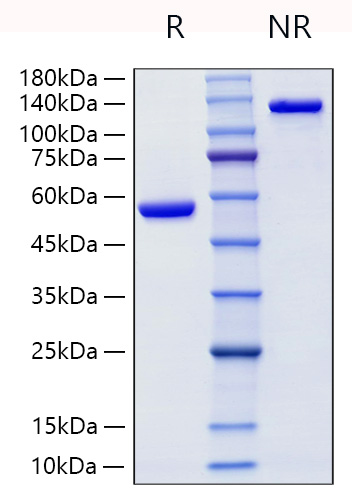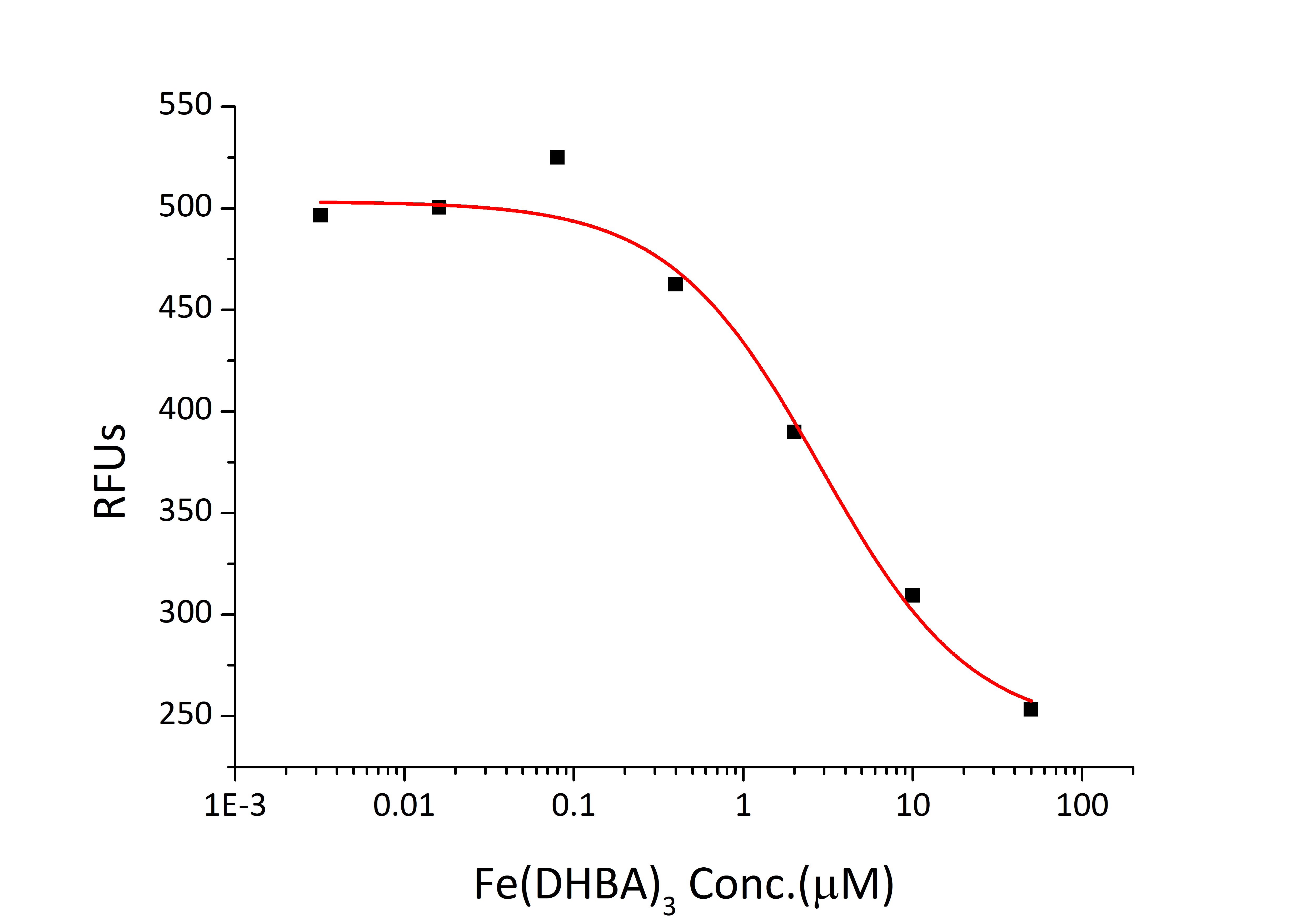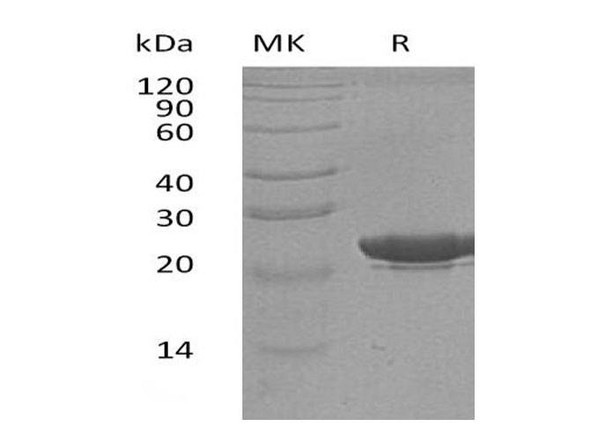Description
Recombinant Human Lipocalin-2/NGAL/LCN2 Protein
The Recombinant Human Lipocalin-2/NGAL/LCN2 Protein is a biologically active recombinant protein that plays a significant role in various cellular processes and signaling pathways in human biology. This protein is widely employed in immunological research, cell biology studies, protein-protein interaction analyses, and therapeutic development, providing researchers with a reliable tool for investigating Lipocalin-2/NGAL/LCN2 function and its implications in health and disease.
This product (SKU: RPCB1830) is produced using HEK293 cells and features a C-hFC tag for convenient detection and purification. The protein exhibits a calculated molecular weight of 46.51 kDa with an observed molecular weight of 55-60 kDa under denaturing conditions, achieving ≥ 95 % as determined by SDS-PAGE.. Functional bioactivity has been validated through rigorous quality control assays, confirming its suitability for demanding research applications.
Key Features
| High Purity by Affinity Chromatography | |
| Mammalian & Bacterial Expression Systems | |
| High lot-to-lot consistency via strict QC |
| Product Name: | Recombinant Human Lipocalin-2/NGAL/LCN2 Protein |
| SKU: | RPCB1830 |
| Size: | 10 μg , 20 μg , 50 μg , 100 μg |
| Reactivity: | Human |
| Synonyms: | p25, 24p3, MSFI, NGAL, Lipocalin-2, LCN2 |
| Tag: | C-hFC |
| Expression Host: | HEK293 cells |
| Calculated MW: | 46.51 kDa |
| Observed MW: | 55-60 kDa |
| Gene ID: | 3934 |
| Protein Description: | High quality, high purity and low endotoxin recombinant Recombinant Human Lipocalin-2/NGAL/LCN2 Protein (RPCB1830), tested reactivity in HEK293 cells and has been validated in SDS-PAGE.100% guaranteed. |
| Endotoxin: | < 0.01 EU/μg of the protein by LAL method |
| Purity: | ≥ 95 % as determined by SDS-PAGE. |
| Formulation: | Lyophilized from a 0.22 μm filtered solution of PBS, pH 7.4. |
| Bio-Activity: | 1、Measured by its ability to bind Iron(III) dihydroxybenzoic acid [Fe(DHBA)3]. The binding of Fe(DHBA)3 results in the quenching of Trp fluorescence in recombinant mouse Lipocalin-2. Recombinant human Lipocalin-2 can bind >2.84 μM of Fe(DHBA)3. |
| Reconstitution: | Centrifμge the vial before opening. Reconstitute to a concentration of 0.1-0.5 mg/mL in sterile distilled water. Avoid vortex or vigorously pipetting the protein. For long term storage, it is recommended to add a carrier protein or stablizer (e.g. 0.1% BSA, 5% HSA, 10% FBS or 5% Trehalose), and aliquot the reconstituted protein solution to minimize free-thaw cycles. |
| Storage: | Store at -20℃.Store the lyophilized protein at -20℃ to -80 ℃ up to 1 year from the date of receipt. After reconstitution, the protein solution is stable at -20℃ for 3 months, at 2-8℃ for up to 1 week. |
Lipocalin-2 (LCN2), also known as neutrophil gelatinase-associated lipocalin (NGAL), is a 25 kDa protein belonging to the lipocalin superfamily. Members of this family transport small hydrophobic molecules such as lipids, steroid hormones and retinoids. The protein is a neutrophil gelatinase-associated lipocalin and plays a role in innate immunity by limiting bacterial growth as a result of sequestering iron-containing siderophores. The presence of this protein in blood and urine is an early biomarker of acute kidney injury. This protein is thought to be be involved in multiple cellular processes, including maintenance of skin homeostasis, and suppression of invasiveness and metastasis. Mice lacking this gene are more susceptible to bacterial infection than wild type mice.








